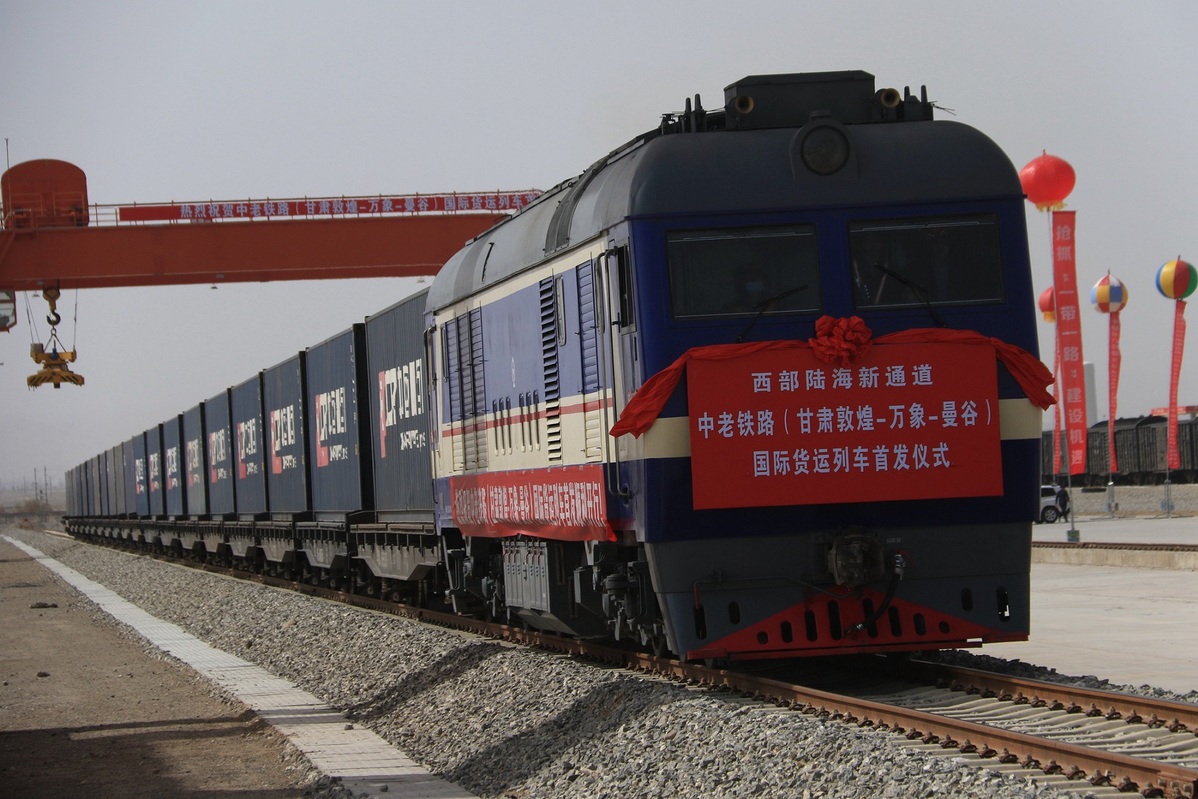China-Thailand railway brings Thais hope for convenience, prosperity
Xinhua | Updated: 2022-11-20 11:47

BANGKOK -- Recalling her childhood, Pannaros Boonserm said railway linked her home in Chiang Mai with her grandparents' in the Nakhon Ratchasima province in northeastern Thailand.
"My parents and I had to spend a lot of time on the train," said the 32-year-old translator at the China-Thailand railway construction project, noting that gazing out the window at the slow passing scenery and towns has been an unfading childhood memory.
The trains in Thailand exhaust people on a long journey because it is too slow, she said, hoping the China-Thailand high-speed railway to complete and start operation as soon as possible.
"My grandparents have been in their 80s. They want to visit their friends in Bangkok, but they're worried about the long-time travelling. That's why they're so excited to know that the railway is under construction," Pannaros said.
The China-Thailand railway, an important part of the trans-Asian railway network, will be Thailand's first standard-gauge high-speed railway. The first section, linking the Thai capital of Bangkok with the Nakhon Ratchasima province, is expected to shorten the travel time from more than four hours to over one hour.
"It brings us hope," she said. She believed the railway will not only facilitate the traveling of local residents, but also help revive the tourism sector and economic growth in regions along the way.
Having studied in Nankai University in north China's Tianjin Municipality for several years, Pannaros visited many places in China and witnessed how high-speed railways have improved local residents' living standards.
"I'm also expecting the connectivity of the China-Laos-Thailand railway. By then, I can take a train trip all the way northward from Bangkok to Kunming in Southwest China's Yunnan province," she said.
When completed, the China-Thailand railway will take trains from Bangkok to the border town of Nong Khai, where a bridge will connect it with the China-Laos railway. By then people can travel by train from Bangkok, through Laos, to Kunming.
Ma Shengshuang, general manager of the China Railway Design Corporation (Thailand Branch), the supervision company of the first-phase China-Thailand railway project, said the construction work has picked up speed after Thailand eased COVID-19 restriction measures.
Analysts said the China-Thailand railway, once put into operation, will not only inject vitality into the economic development of regions along the line in Thailand, but also strengthen the trans-Asian railway network and promote regional connectivity.
For Viroj Lubkritcom, a 59-year-old Thai engineer, the China-Thailand railway is more than a connectivity infrastructure and is set to boost people-to-people bonds.
With experience as a project supervisor for 35 years, Viroj now works at the China Railway Design Corporation (Thailand Branch).
"We've been working closely with our Chinese colleagues. By cooperating and communicating with them, we have gained a lot of experiences, both in terms of railway construction and project management," he said.
























